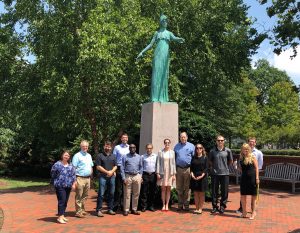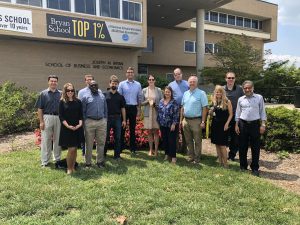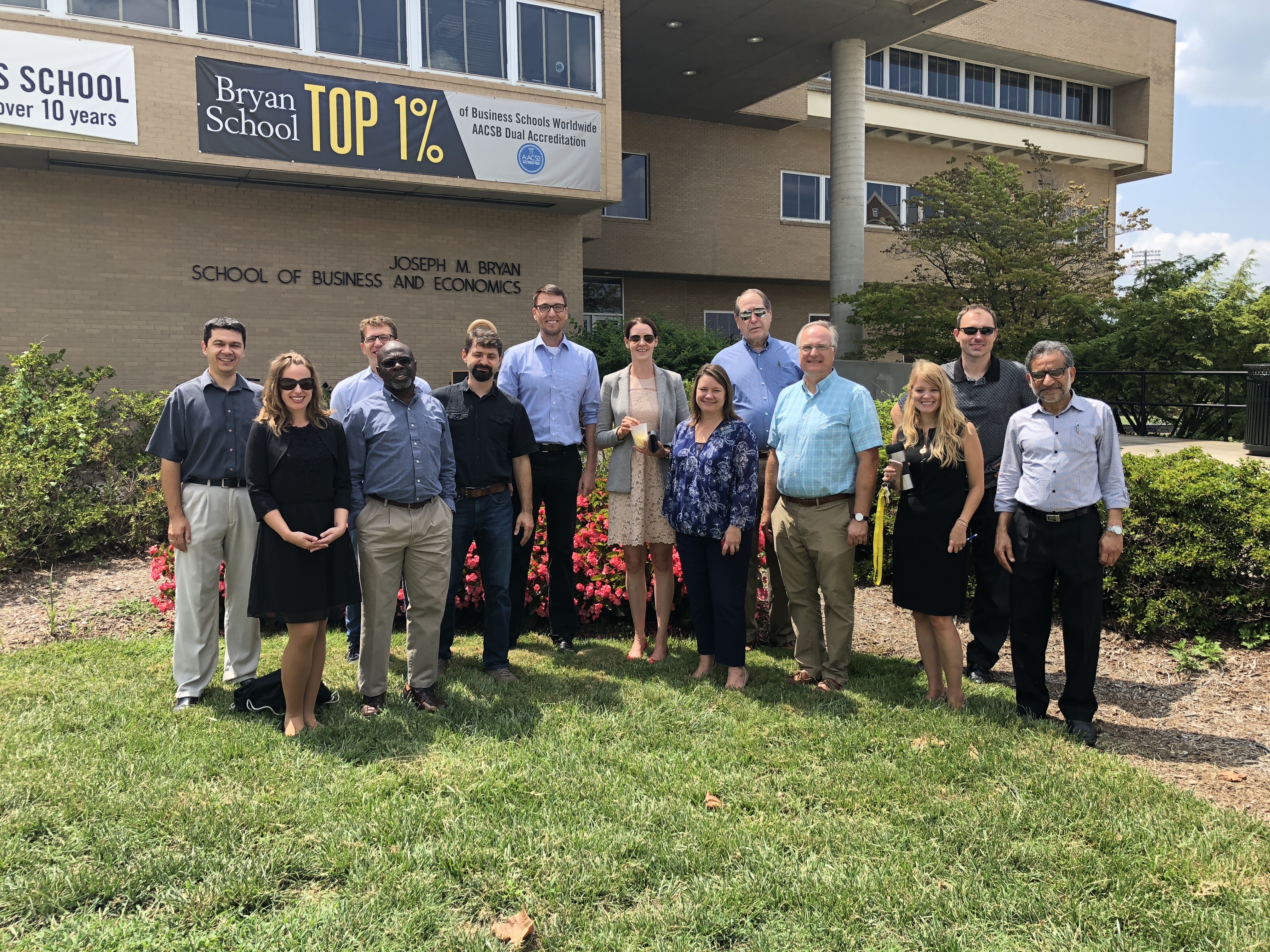
Research Xackathon, Greensboro, NC
Research network workshop on “The concept of cultural archetypes – A way of measuring culture and improving our understanding of cultural differences?”
University of North Carolina, USA, August 15 – 17, 2018
Mid of August 2018 the members of the research network met with various researcher from Australia and the U.S. for a workshop on exploring the concept of cultural archetypes and its potential for Human Resource Management. Apart from the members of the research team (rofessor Sven Hauff (Helmut
Schmidt University, Germany); Scientific Associate Tina Ladwig (Hamburg University of Technology, Germany); Associate Professor Nicole Franziska Richter (SDU, Denmark); Assistant Professor Christopher Schlägel (Maastricht University, Netherlands); Assistant Professor Vas Taras (University of North Carolina,
USA), invited guests have been Prof. Dr. Sunil Venaik (The University of Queensland, St Lucia/Australia) who is an Associate Professor of International Business and Robert D. Stephens, who is an Associate Professor of Management (Shippensburg University, Pennsylvania, USA).
The host of the workshop Vas Taras first invited all members and associated researcher from his department to an informal get-together, where each particpant had the chance to get to know the main research focus at the University of North Carolina within cross-cultural studies and to elaborate first
connection in their research.
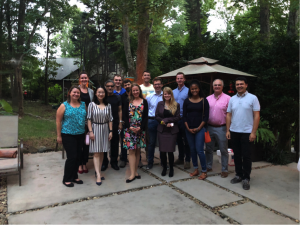
The second day started with a welcome reception at the department and a brief introduction of all participants before focusing on measuring culture and improving the understanding of the cultural archetype concept.

Herefore Prof. Dr. Nicole Richter presented the preliminary study on cultural archetypes, where six archetypes had been identified, with reference to Hofstede’s concept of culture (Richter/Hauff/Schlägel/Gudergan/Ringle/Gunkel (2016). Advocating the use of cultural archetypes in crosscultural
management studies. Journal of International Management, 22(1), 63-83).
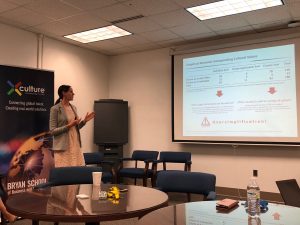
In contrast to this approach Prof. Dr. Sunil Venaik shared his concept of cultural archetypes, yet with reference to the concept of culture proposed by Schwartz (1992) (Venaik/Midgley (2015). Mindscapes across landscapes: Archetypes of transnational and subnational culture. Journal of International Business
Studies, 46(9), 1051-1079).
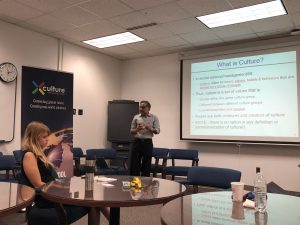
Both presentations led to a discussion on the similarities and differences of both approaches – especially with regard to the use of cluster analysis and archetype analysis. The aim was to outline first general findings on the existence of archetypes in different national surroundings and to elaborate the potentials of using data gathered in the various studies conducted by Vas Taras and the data gathered in the context of his x-culture project (see www.x-culture.org).By means of this database, we are able to further elaborate on the identification of specific archetypes across nations building on current concepts of culture.
The discussion led to the following outcomes: (1) Based on the discussion potentials of both ways to approach the concept of cultural archetypes have been explored and a roadmap on how to structure a possible publication on the both ways, using data from the x-culture-project has been developed. (2) New ideas to combine both the theoretical approach and the data of the x-culture-project have been developed. Among them for example: – Are cultural archetypes able to predict the relationship between team compositions and outcomes? – Is there a possibility to derive insights from individual characteritics upon
cultural archetypes? – Do some combinations of archetypes lead to better team performances? Above all the particpants of the workshop still believe in a strong value of the analysis of the role of cultural archetypes in shaping cultural intelligence. There is still a strong need of further analyzing intercultural
competence assessments and measurement approaches in cross-cultural research in preparation for the next workshop, which will take place at University of Southern Denmark – on its Odense or Slagelse campus.

